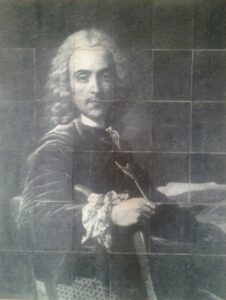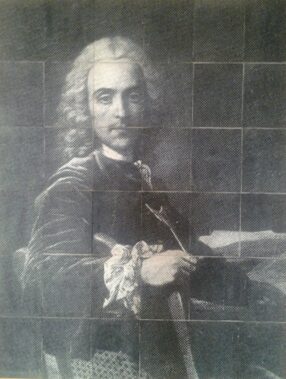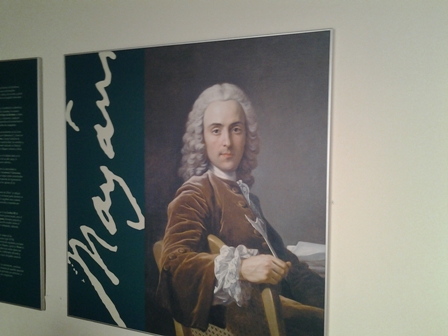Gregorio Mayans y Siscar (1699–1781) was a historian, linguist and writer from Oliva during the Enlightenment.
Born on 9 May 1699 his father fought on the wrong side during the Spanish War of Succession, supporting the archduke Charles VI against Felipe V, the eventual winner and founder of the Borbon dynasty in Spain.
His father went to Barcelona with the Archduke in 1706, returning in 1713. His grandfather, who had been Mayor of Oliva, encouraged Gregorio to study law, which he did at the University of Valencia, where he was influenced by the British philosopher John Locke and the French René Descartes.
In 1719, he continued his law studies in Salamanca, although it was Manuel Martí, Dean of Alicante University, who introduced Mayans to the study of the Renaissance and the work of thinkers such as Juan Luis Vives, San Juan de la Cruz, Teresa of Ávila, and Miguel de Cervantes.
 As a Professor at Valencia University he defended a reform of legal studies which would de-emphasize Roman law and give more importance to Spanish customary law.
As a Professor at Valencia University he defended a reform of legal studies which would de-emphasize Roman law and give more importance to Spanish customary law.
He fell out of favour in Valencia and moved to Madrid where he became the royal librarian.
In 1732, he published his Epistolarum libri sex, which brought him into contact with humanists throughout Europe, and in 1737 proposed a plan of Spanish cultural and educational reform and also wrote Origins of the Spanish language, as well as the first biography of Miguel de Cervantes, published in 1738.
In 1740 he was forced to retire to Oliva, and dedicated himself to his studies.
Coming out of retirement following a change in the political climate he married his cousin, Margarita Pascual, and in 1742 he founded the Valencian Academy, and was considered so radical that he was investigated by the Spanish Inquisition.
In 1776, he became a member of the Real Sociedad Económica de Amigos del País de Valencia, and was in contact with such important figures as the botanist Cavanilles.
He died in 1781 before he was able to complete an edition of the Complete Work of Juan Luis Vives.


